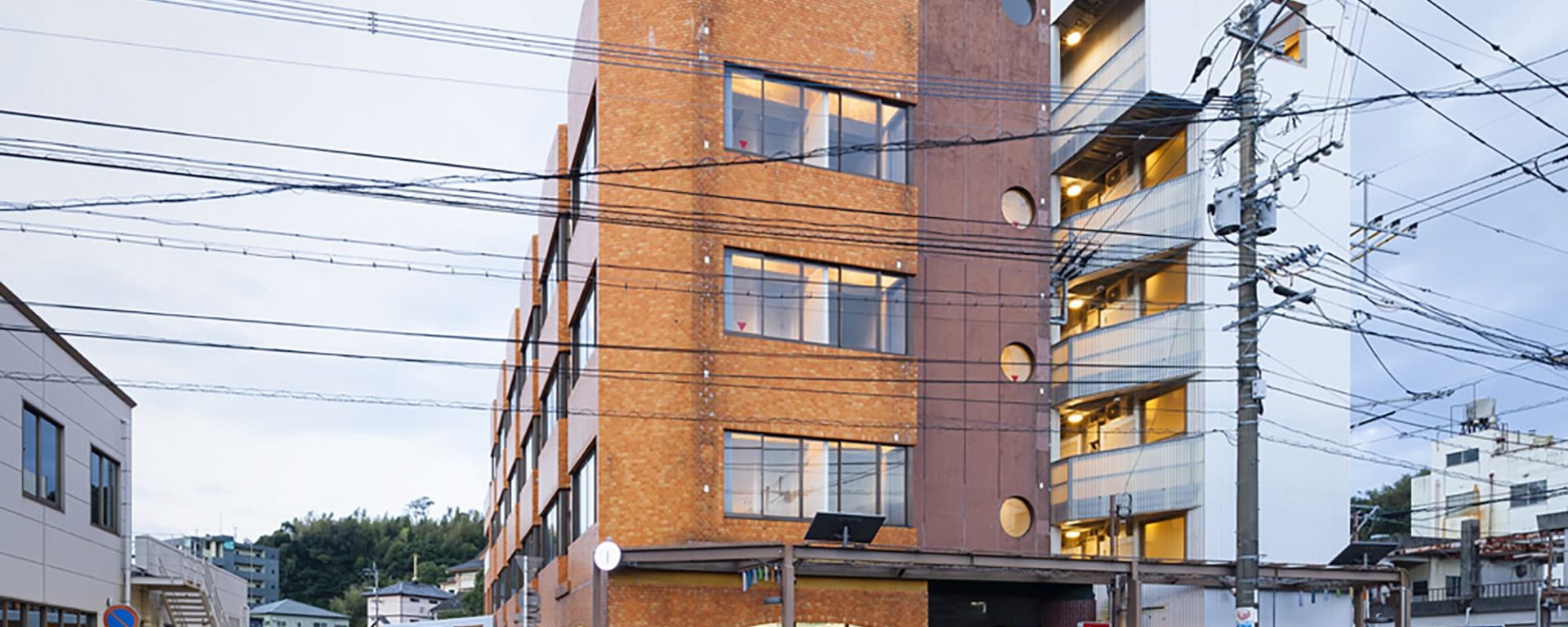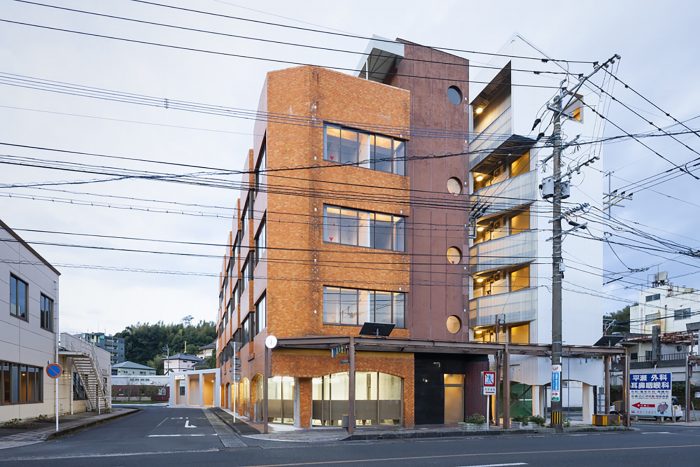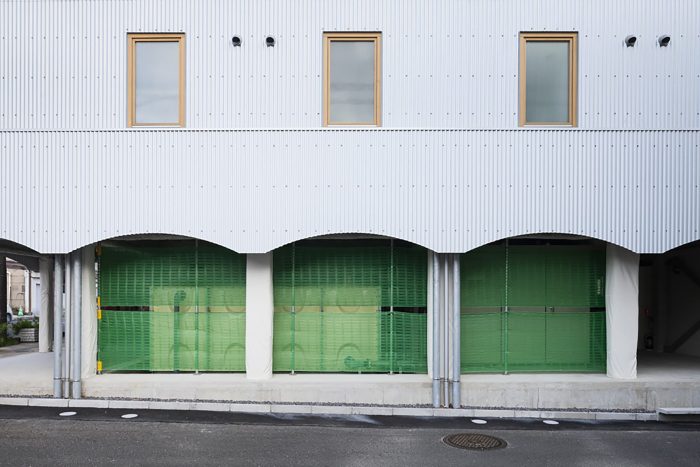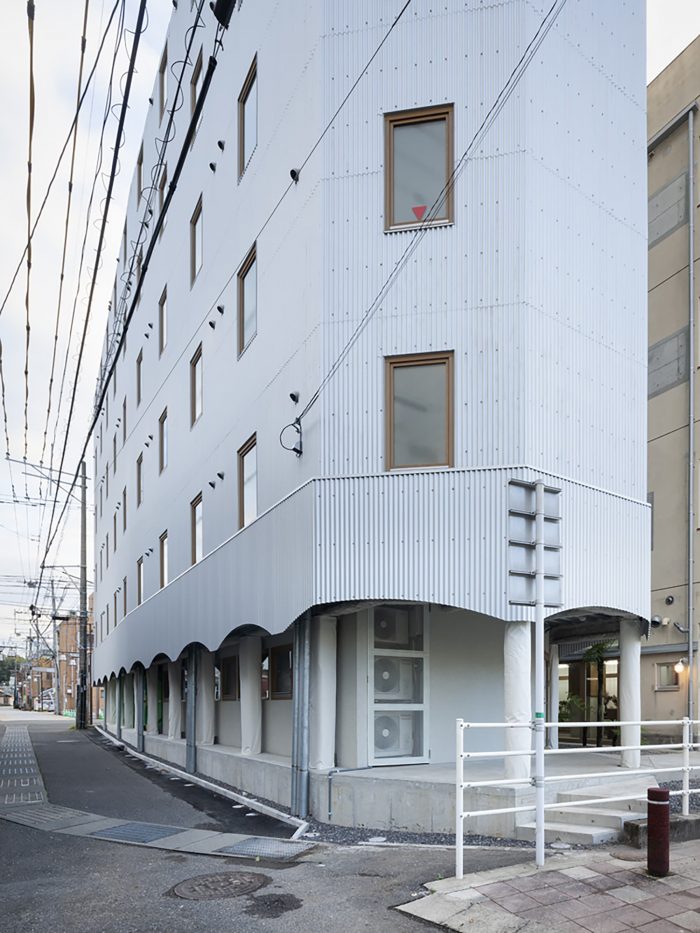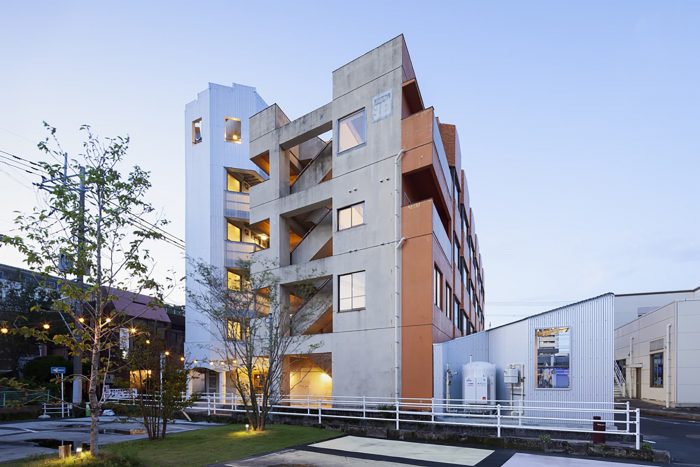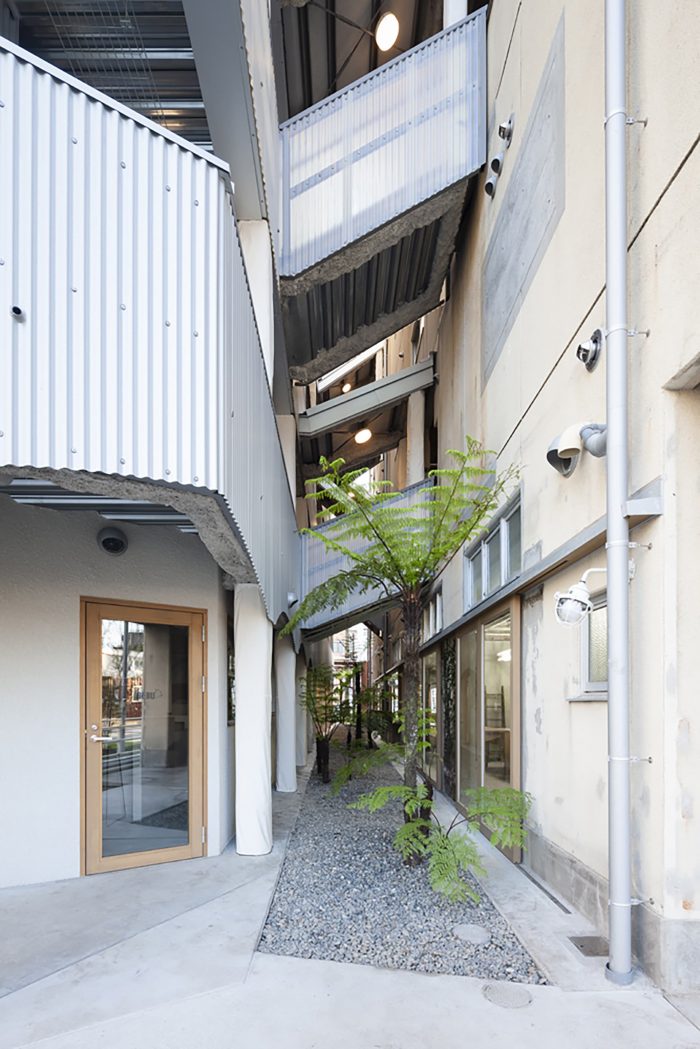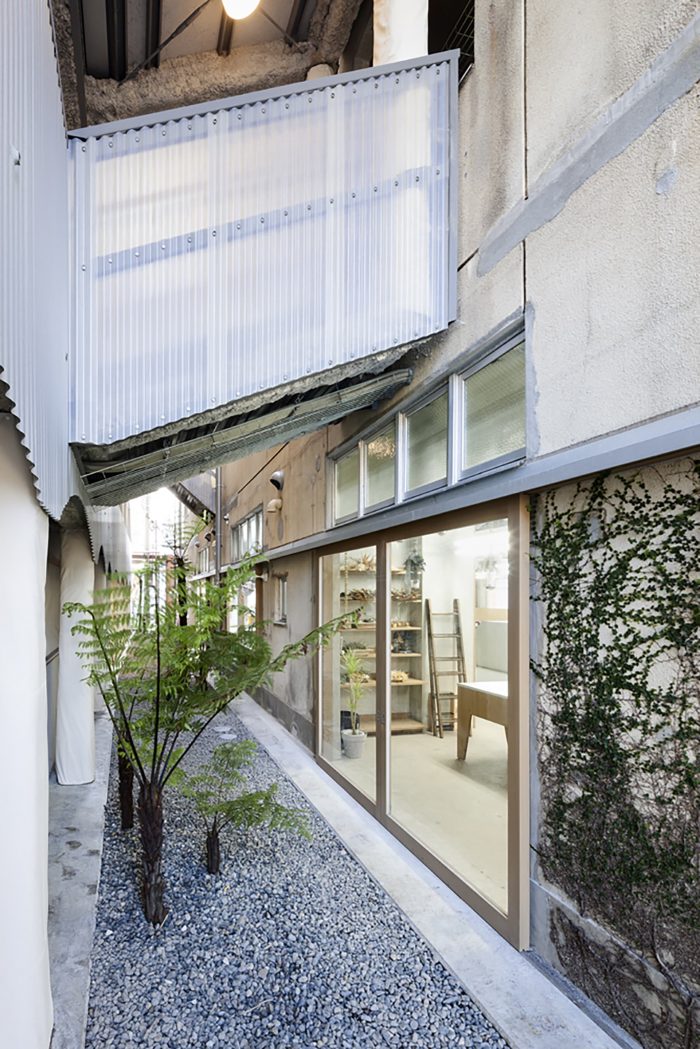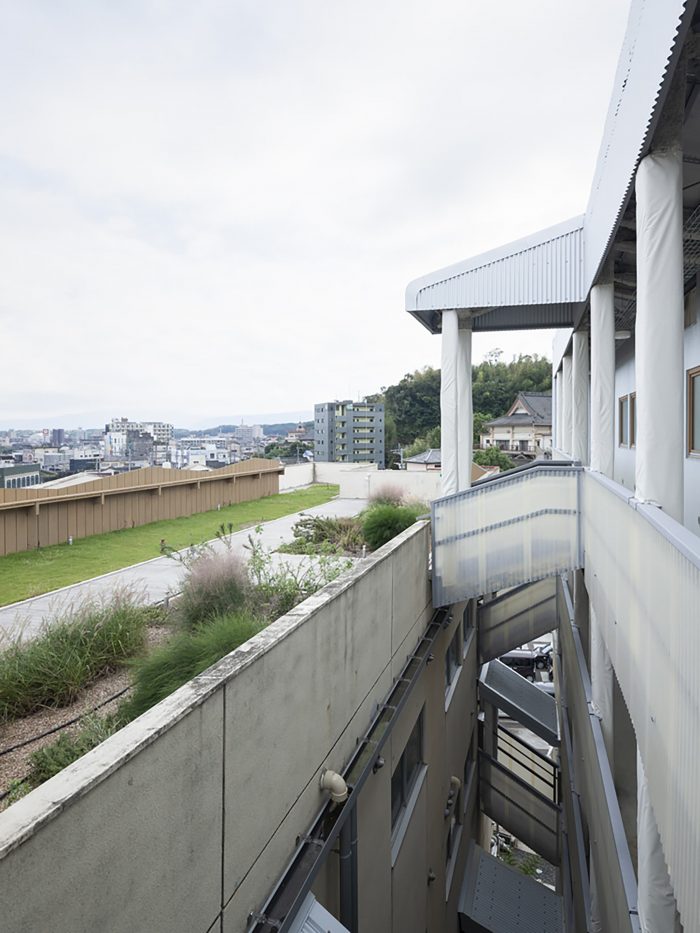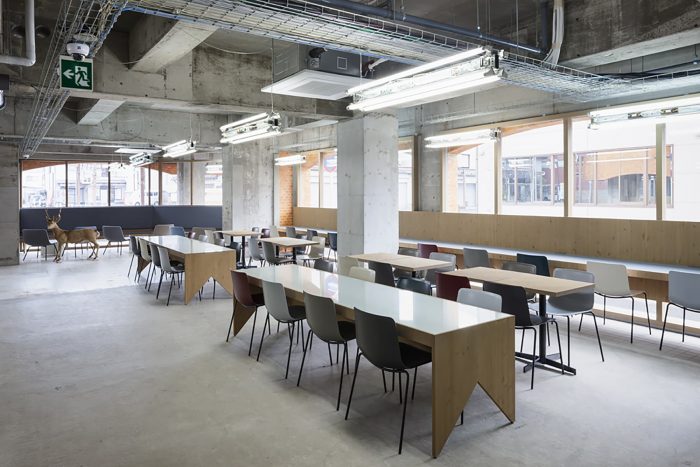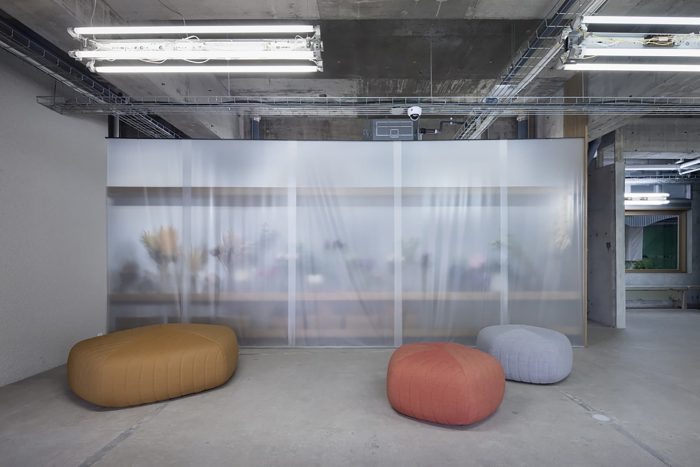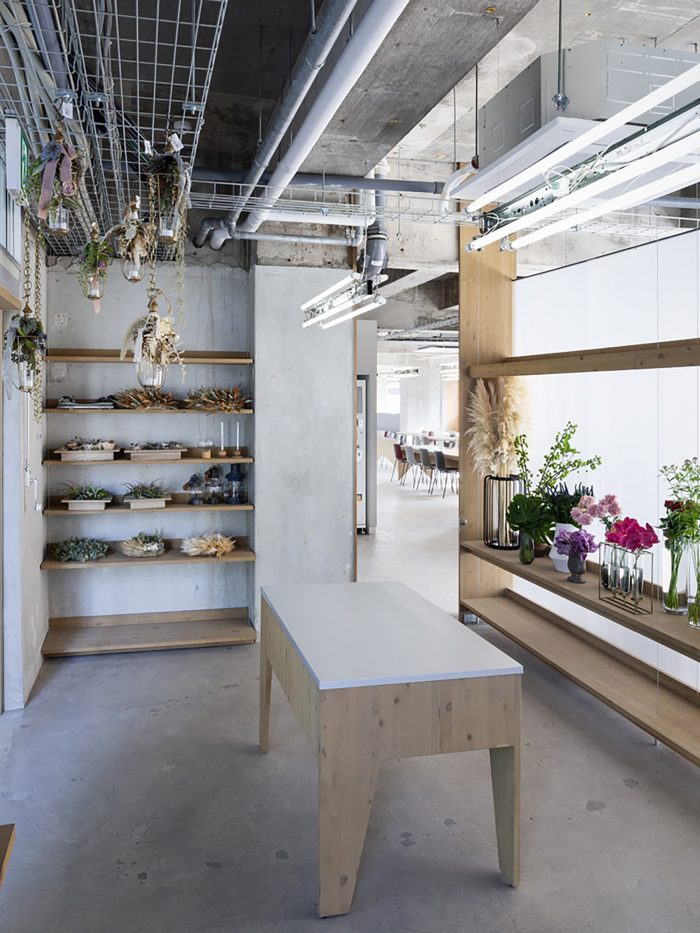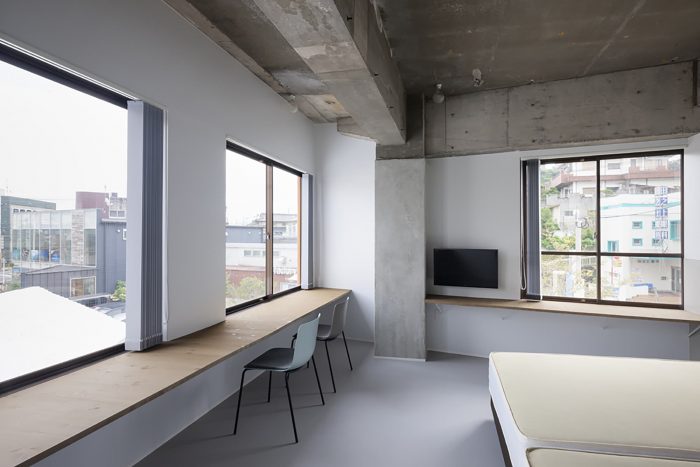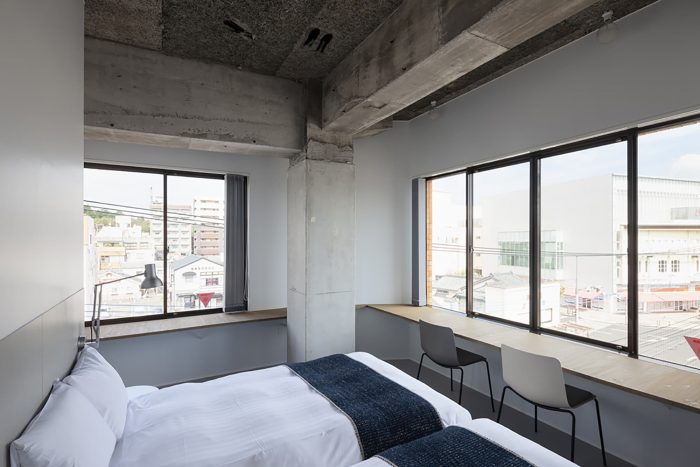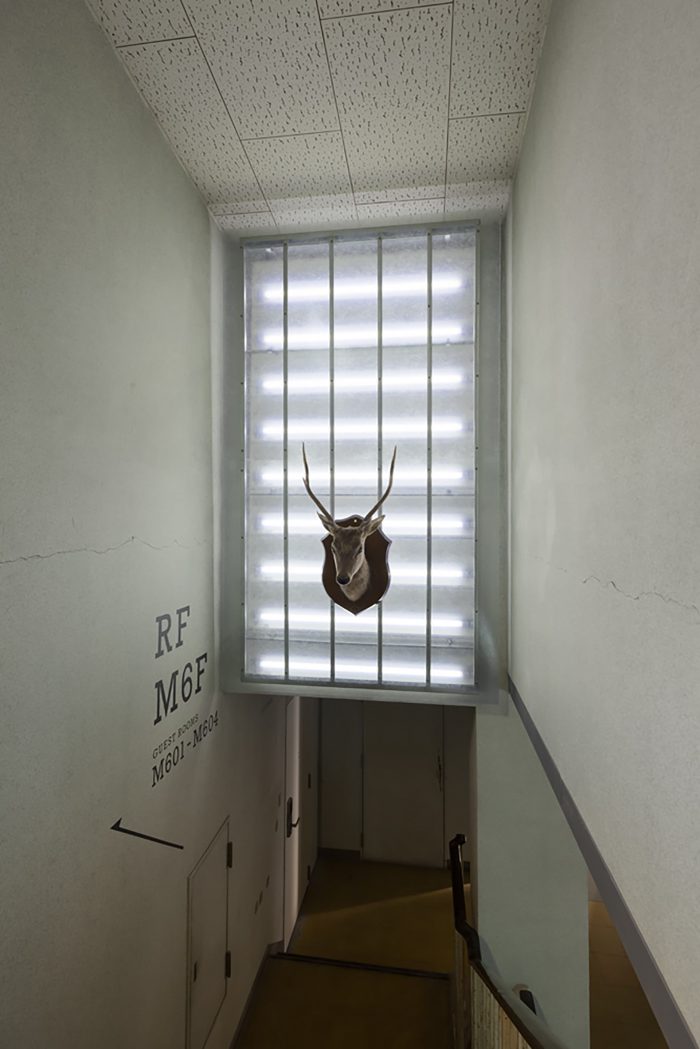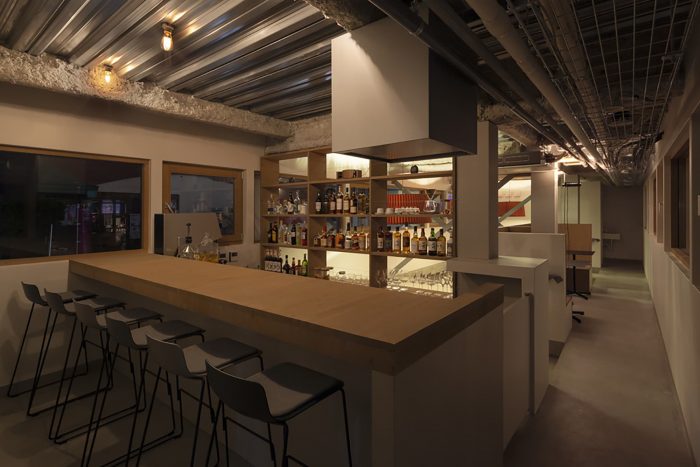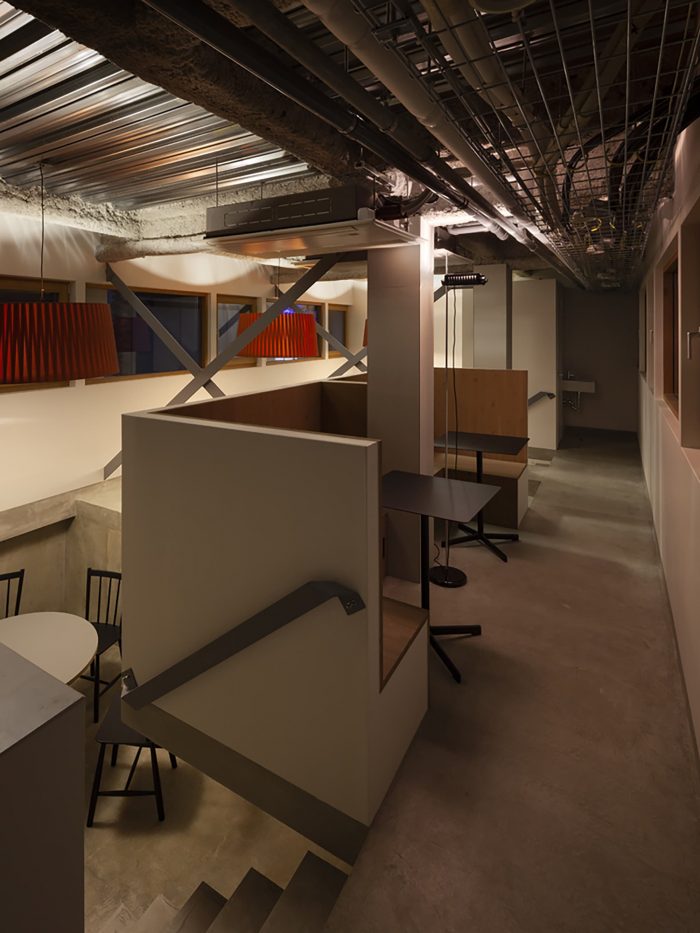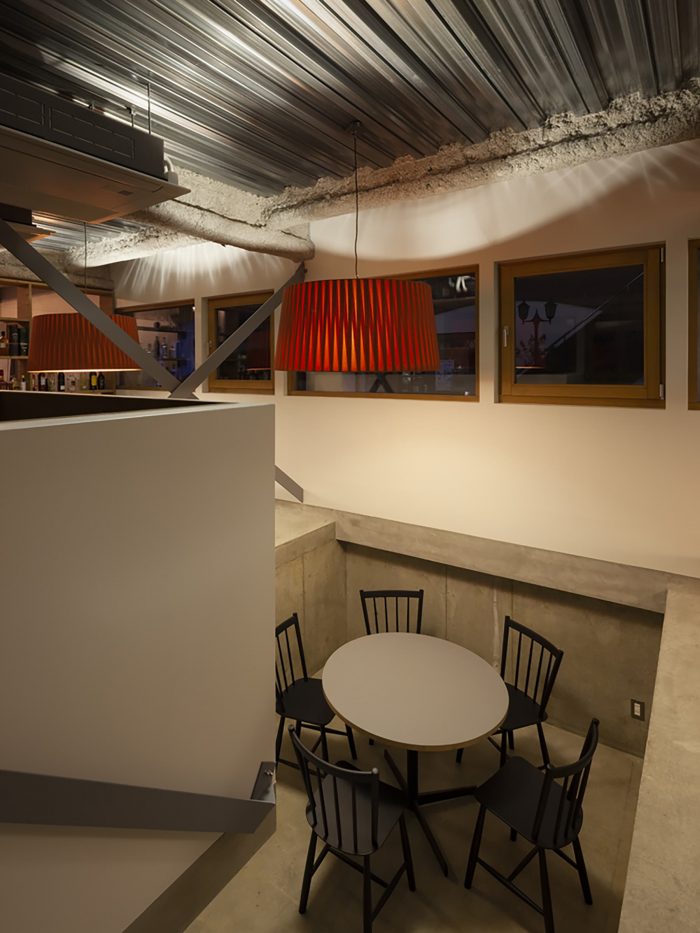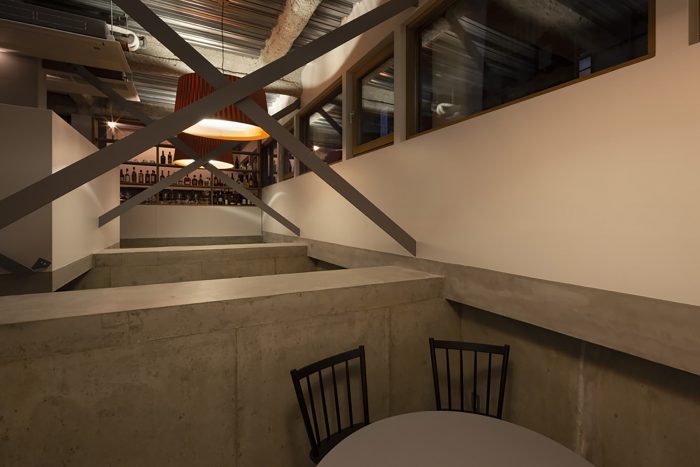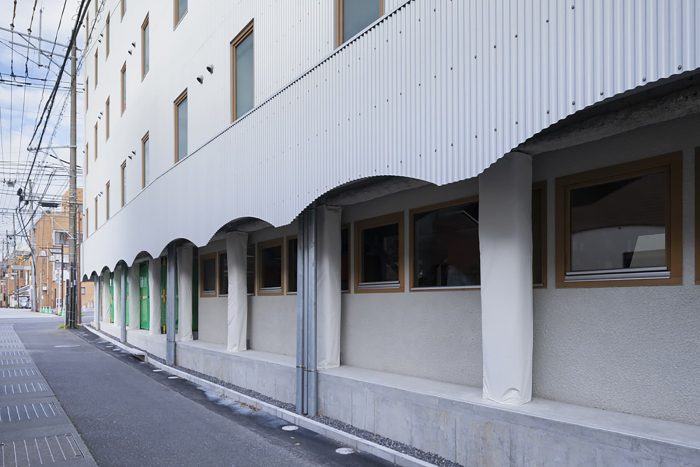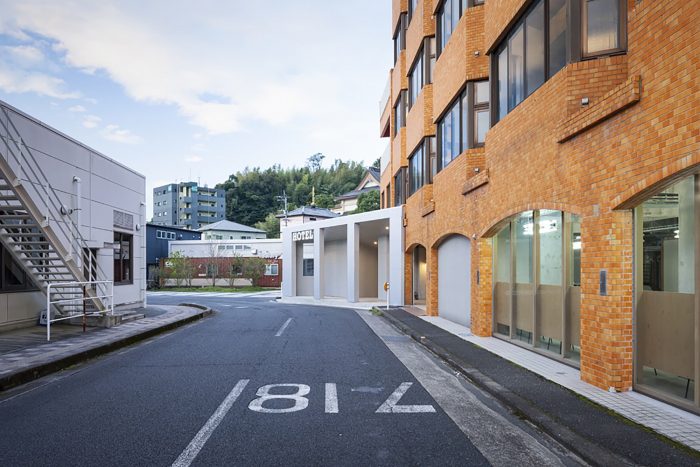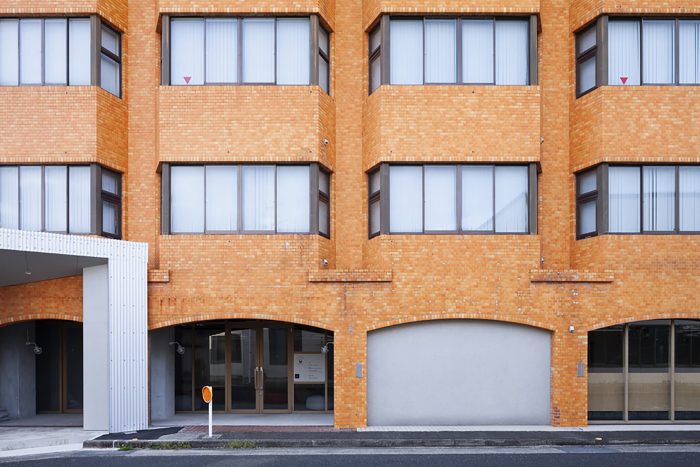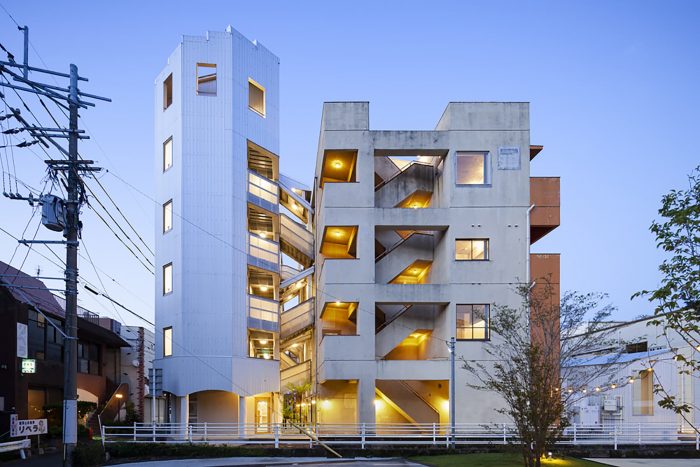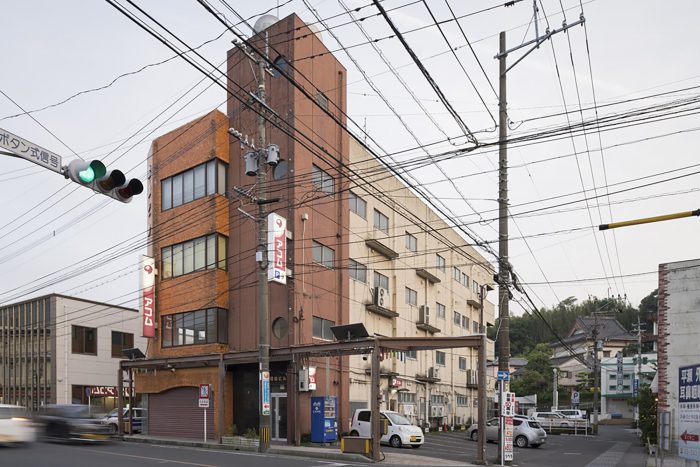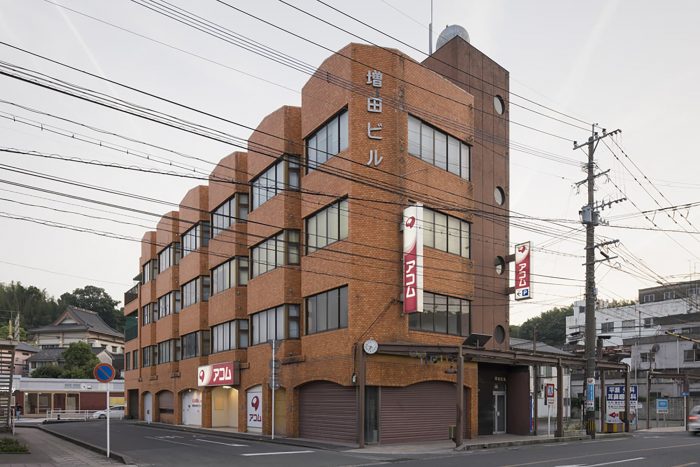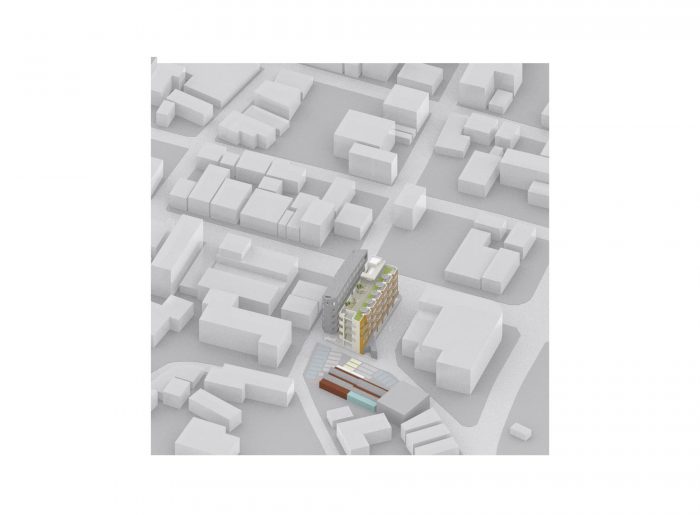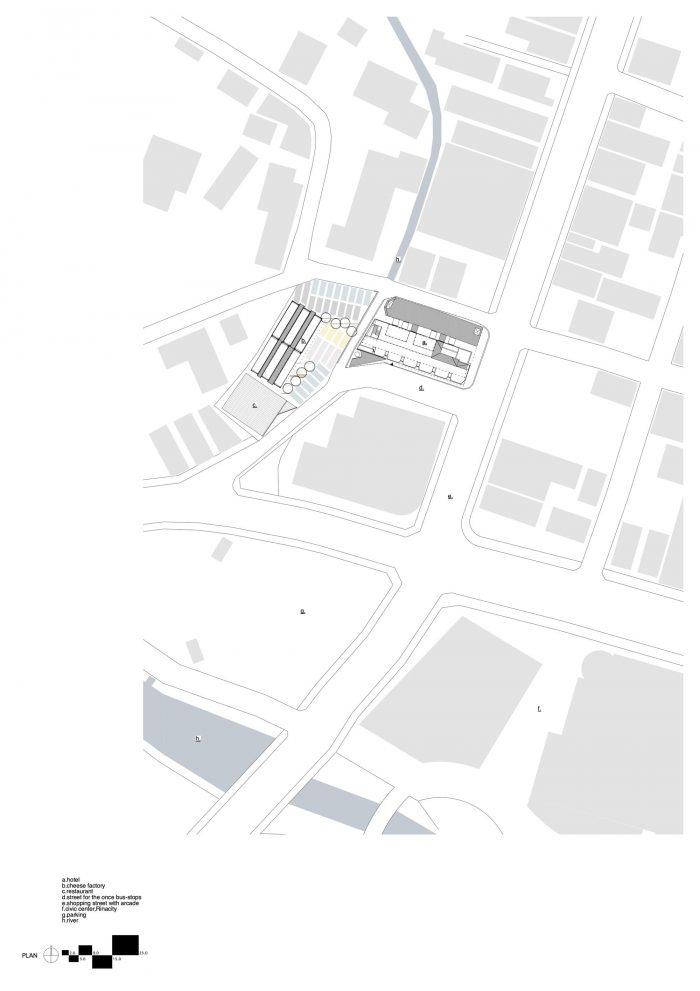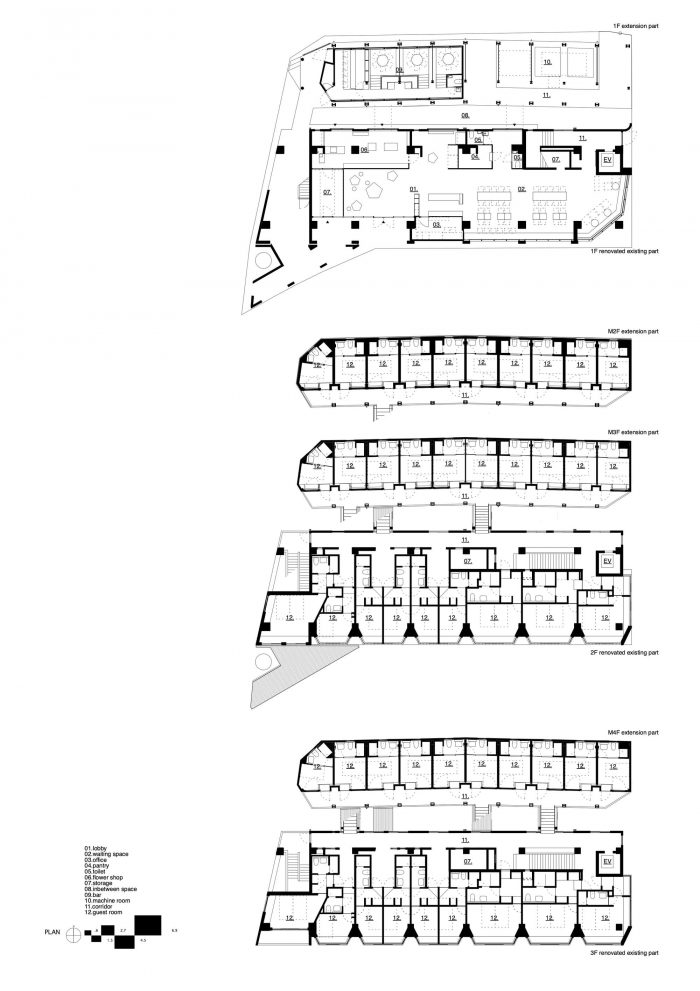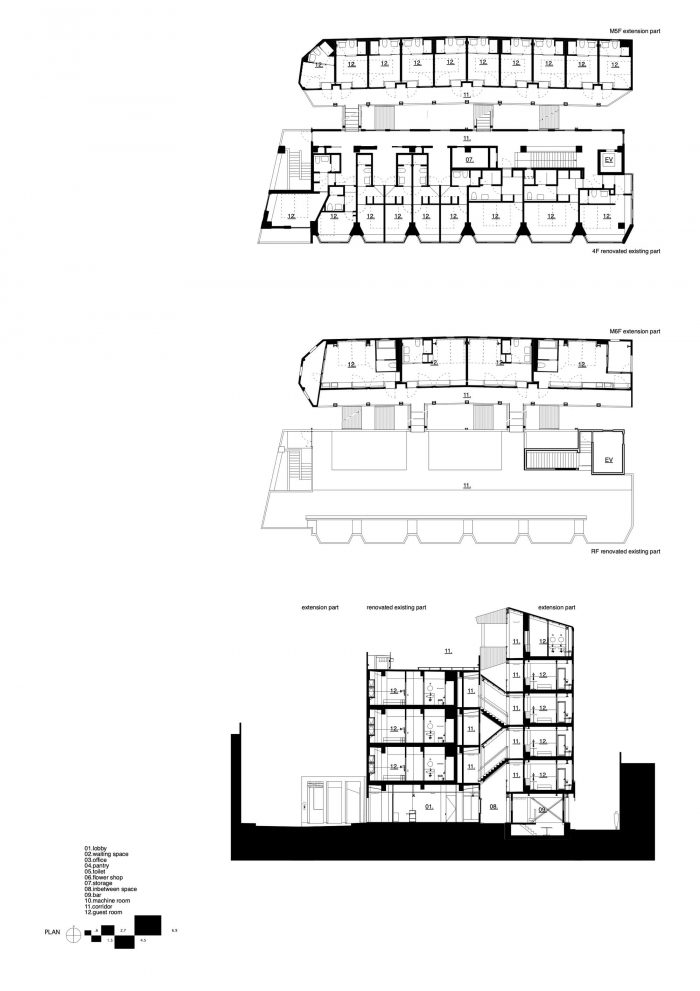位于日本最南端半岛的中心城市–卡诺亚的商务酒店。我们的想法是以低预算建造一个商务酒店,这对目前的情况是必要的,并为这个明显缺乏旅游资源的城市提供一个机会,那里的空地像昆虫一样突出。酒店后面的停车场也被征用为场地,并建造了一座扩建建筑,在不拆除现有建筑的情况下提供必要的楼层空间。这个扩建项目减少了街道上的空地数量,哪怕只是一点点,并创造了一个有四个建筑(三个设施)的小街景,包括一个由我们在邻近地点设计的奶酪工厂,以加强食品教育,旁边还有一个现有的餐厅,创造了生动的活动和步行者规模的活动。
Business hotel in Kanoya, the central city of Japan’s southernmost peninsula. The idea was to build a business hotel on a low budget, which was necessary for the current situation, and to provide an opportunity for the city, which is conspicuously lacking in tourism resources, where vacant lots stand out like insects. The parking lot behind the hotel was also acquired as a site, and iand an extension building was constructed to provide the necessary floor space without demolishing the existing building. This extension reduced the number of vacant lots on the street, even if only slightly, and created a small streetscape with four buildings(three facilities), including a cheese factory designed by us on a neighboring site for enhanced food education and an existing restaurant next to it, creating lively activities and events of pedestrian scale.
当地社区想要一个新奇的东西,而不是一个老旧的酒店,所以为了实现这两点,扩建部分没有连接到现有的建筑上,而是建在一个刚好的空隙上(空间之间),即既不是小巷也不是院子,以创造一个建筑的立面,每个都有不同的氛围。此外,扩建部分的高度与现有建筑的高度不同,整体形状被扭曲,因此它不是一个简单的正方形空间,使这个空间具有图的滚动。连接两座建筑的桥梁和扩建建筑的走廊都在室外,构图简单但丰富,所以当你离开房间时,可以闻到农场的味道,品尝到梦幻般的风景,如晨雾。
The local community wanted a novelty rather than an old hotel, so in order to achieve both, the extension was not attached to the existing building, but was built across a just gap (inbetween spaces), that is neither an alley nor a courtyard, to create an elevation of buildings each with a different atmosphere. In addition, the height of the extension is different from that of the existing building, and the overall shape is distorted so that it is not a simple square space, giving this space a roll of Figure. The bridges connecting the two buildings and the corridor of the extension building are outdoors, and the composition is simple but rich so that when you leave your room you can smell the farm and taste the fantastic scenery, such as the morning mist.
室内和室外的装饰也包含了混乱、新奇和精致、亲和之间的矛盾。这是因为酒店是一个来自许多不同背景的人和物来往的空间,因此有必要创造一个开放的、不稳定的物体场所,空间之间有许多空隙,可以接受各种人和物,而不是一个绝对的统一体,需要一个建筑师对所有放置在空间的物体保持一致。这是因为有必要使它成为一个可以接受人和物的地方。
The indoor and outdoor finishes also embrace the contradiction between chaos, novelty, and sophistication, affinity. This is because the hotel is a space where people and objects from many different backgrounds come and go, and therefore it is necessary to create an open and unstable place of objects with many gaps in between spaces that can accept a variety of people and objects, rather than an absolute unity that requires the consistency of one architect for all objects placed in the space. This is because it was necessary to make it a place where people and objects can be accepted.
每个空间中的物体都被分为三组或更多,每组都有相同的尺寸、质地和风格,但各组之间有足够的差异和矛盾,以遵循空间的潮流。我们认为这些差异和矛盾会成为 “线索”、”缝隙”(在空间之间),使人和物感到舒适和紧张,所以我们让它们保持原样,没有统一起来。
The objects in each space are divided into three or more groups, each with the same size, texture, and style, but with enough differences and contradictions between the groups to follow the current of the space. We thought that these differences and contradictions would become “clues”, “gaps” (in between space) that would make people and things feel comfortable and tense, so we left them as they were without unifying them.
这种以物体之间的关系为基础的空间,通过排斥和包容的重复,创造出舒适和群体的效果,就像阿道夫-卢斯的空间一样,它可以成为消费社会中空间的一个新视角,作为一个媚俗的空间,赋予普通生活以复杂的意义。
This kind of space, based on the relationship between objects, creates the comfort and effect of grouping through the repetition of exclusion and inclusion, as in the case of Adolf Loos’s space, and it could become a new perspective on space in a consumer society, as a kitsch space that gives a sophisticated complexity to ordinary life.
Architects: micelle
Area : 1888 m²
Year : 2020
Photographs :Lemmart
Lead Architect : Katada Tomoki
Structural Engineers : Tetsuya Tanaka Structural Engineers
Graphic Designer : Inoue Hironori
Artwork : Soutome Teppei
Planting Design : Araheam
Construction : Uenodan Kensetsu
Furniture Construction : Kuroki Kagu
City : Kagoshima
Country : Japan

